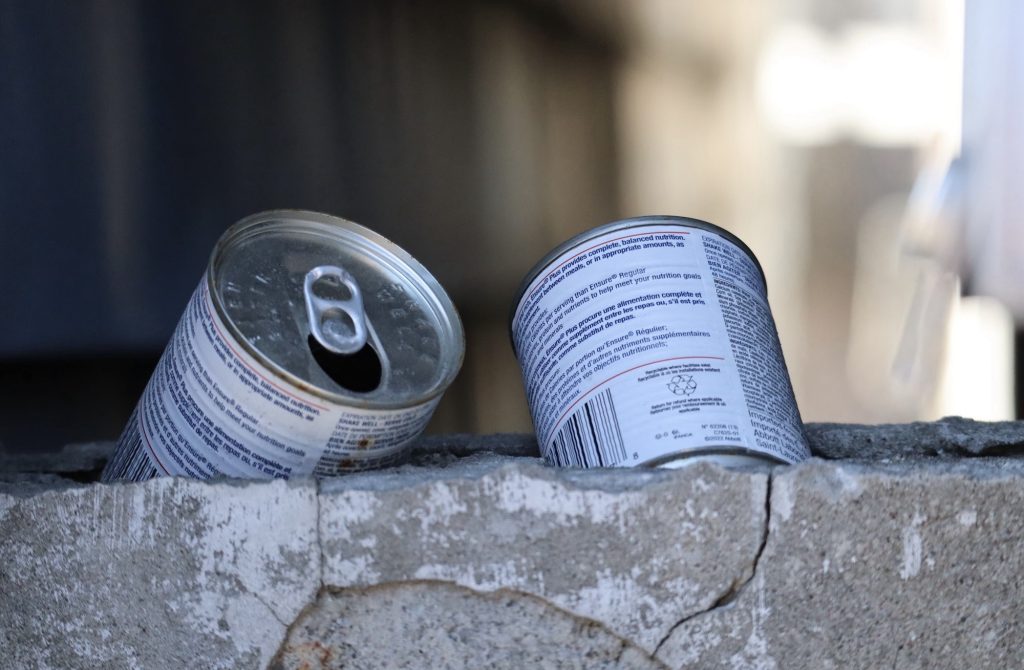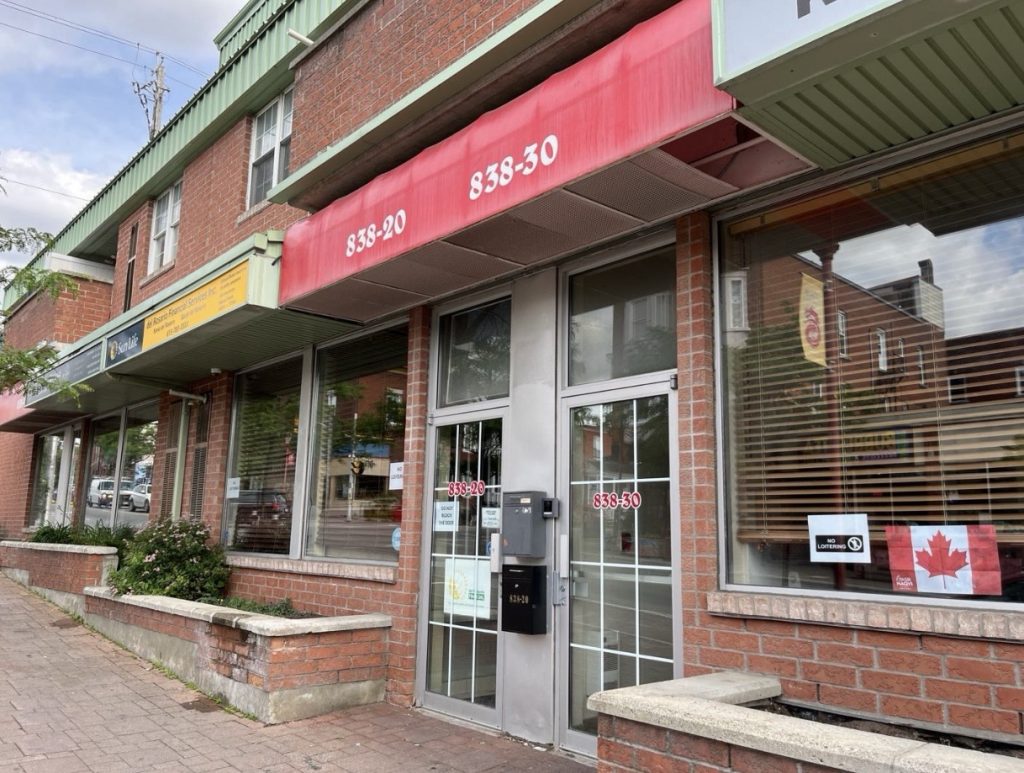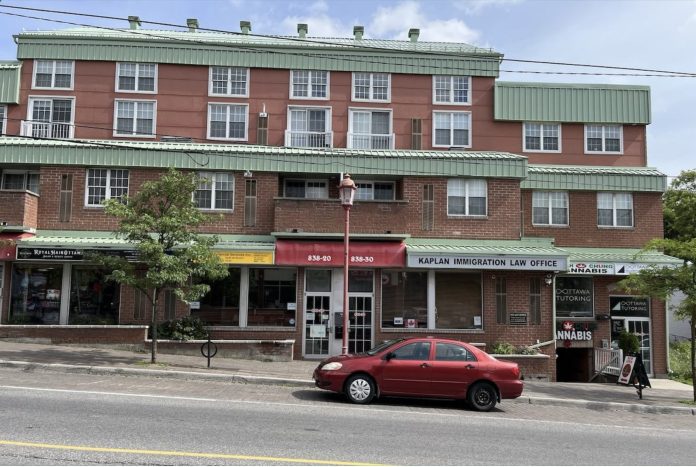After months of public backlash, Chinatown’s Northwood Recovery was set to close permanently on June 9. But to the surprise of area residents and elected officials, the safe supply clinic re-opened under a new name that same day.
New Dawn Medical as it’s now known, is operating with the same staff and mission as before. According to its website, New Dawn operates 20 locations across Ontario and provides treatment for substance use, ranging from opioids and benzodiazepines to alcohol.
Somerset Ward Coun. Ariel Troster recently met with Dr. David D’Souza, the clinic’s new doctor in charge, on June 23. But she is waiting for noticeable change before forming any judgement.
“I would say it was a good meeting,” Troster said in an interview with the Kitchissippi Times. “I’m cautiously optimistic, but the proof will be in the pudding regarding what the neighbourhood looks and feels like in a couple of weeks.”
D’Souza took over from Dr. Suman Koka, who operated Ottawa’s Northwood Recovery branch remotely from Sudbury. In April, CBC reported that Koka billed $2.5 million to public insurance in 2024 for the Ottawa location, a figure which only compounded local mistrust.
Based in Toronto, D’Souza has his work cut out to prove to residents that New Dawn Medical will offer any tangible change in the neighbourhood.
“Until we see change in the immediate area, I don’t think the community’s going to have much faith because there’s a lot of bad blood given their experience with the previous clinic’s ownership and the shock that on the day they were supposed to close their doors they stayed open with the same staff,” said Troster.
Perhaps nobody has a better view of the clinic’s immediate area than James Taylor, who owns and operates Hangout Cafe across the street. From Taylor’s point of view, the clinic takeover has been no more than a name change, calling the management switch a “big, big middle finger.”
“Ever since they’ve opened, the entire neighbourhood has just declined to the point where nobody wants to come down here anymore,” Taylor said. “I’m bleeding money because of this place.”

The nutritious shakes are consumed by people who are malnourished, often due to substance use. File photo by Charlie Senack.
Ryan Turley, a Dalhousie Community Association board member, lives a block away from the clinic. He said the facilities’ impact on the neighbourhood stems from their safe supply practices, including prescribing patients hydromorphone, an opioid sold under the brand name Dilaudid.
Unlike methadone — another well-known safe supply drug prescribed to stave off addiction for over 24 hours — patients need to take Dilaudid every 3-4 hours for a similar effect. According to Turley, this means patients are leaving the clinic with bottles of pills.
“Some of these folks who are really addicted to fentanyl and the really strong stuff, what they wind up doing is they sell or trade the Dilaudid for stronger stuff,” Turley said.
Outside of trading pills, Turley said he’s seen dealers selling Dilaudid to young people.
“It’s a pill mill and it’s predatory,” Turley said. “I don’t think they’re helping anybody.”
D’Souza did not respond to KT’s multiple requests for comment, but told CTV his number one priority is preventing medication from leaving the clinic and being sold on streets
A growing drug epidemic in Ottawa
Ottawa’s Centretown and Chinatown neighbourhoods have been hit hard by Ottawa’s toxic drug crisis and the social service challenges which follow.
The neighbourhood’s discontent with the Somerset Clinic isn’t without layers of nuance. Many locals are in favour of safe supply sites, just not in favour of how Northwood Recovery handled that role.
“I’m incredibly supportive of safe supply, but it’s no longer safe supply if it’s just being used as currency to buy street drugs,” Troster said.
Over two weeks since New Dawn Medical took over the clinic, change remains to be seen on the ground. With or without the clinic, the reality remains that Ottawa has a serious fentanyl problem.
Resident Nevin Emmanuel used to walk his 9-year-old son to and from Devonshire Community Public School, where they would pass by Northwood Recovery every day. Although his son has since switched schools, their experience left a mark. Emmanuel said he and his son passed by “three bodies” on their way past the clinic.
“We’ve seen people who are passed out, who are incapacitated or who are acting in a way that kids shouldn’t see because they’re intoxicated or otherwise compromised in a way that it’s not safe for kids,” Emmanuel told KT.

Earlier this year, the Somerset West Community Health Centre was forced to close its safe consumption site due to new government regulations which prohibited such facilities from operating near schools or childcare centres.
In its place, a HART Hub has opened — which stands for a Homelessness and Addiction Recovery Treatment Centre. While it provides some support to those battling addiction, there is no place for users to inject illicit drugs safely.
The Ontario government says it focuses on primary care, mental health services, addiction care and employment support. Each hub will receive $6.3 million annually, which is four times more funding than what the safe consumption sites collected in support.
“Whether it’s open or whether it’s closed is not going to make much of a difference in the public drug use issue, which is related to the closure of the supervised consumption site,” Troster said. “That’s something that was done without consultation of our community.”
Still, amid all the community’s frustration, Troster emphasized the importance of nuance in conversations around addiction and safe supply.
“We want people to have the health care they need, and we also want our community to be safe,” Troster said.
“If we have to live with neighbours who use drugs, if we have to live with health care services for people with addictions, we want to figure out how to make it work because if it’s not Northwood or New Dawn, it’s going to be someone else.”
